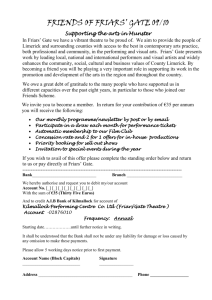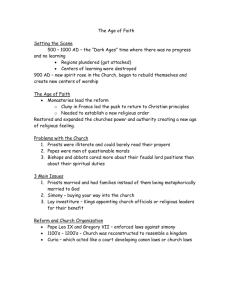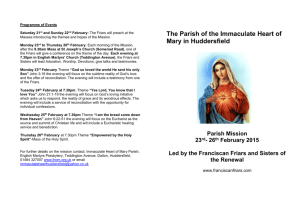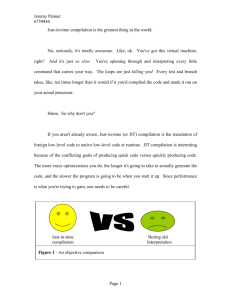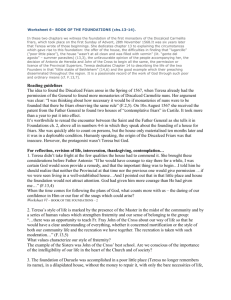Groat (= 4 pennies) Penny (= roughly a day’s
advertisement
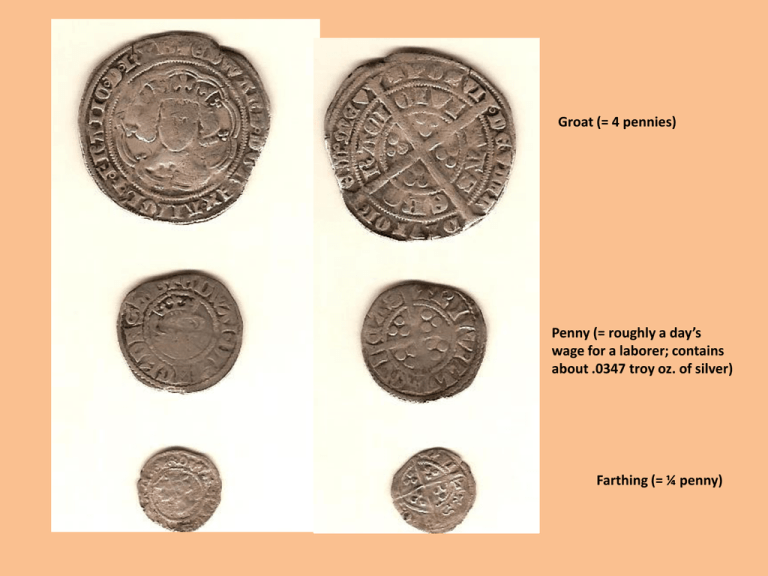
Groat (= 4 pennies) Penny (= roughly a day’s wage for a laborer; contains about .0347 troy oz. of silver) Farthing (= ¼ penny) EDWARD D G REX ANGLIA FRANC D HIB (Edward, by God’s grace King of England & France & Lord of Hibernia) Outer: POSVI DEUM ADIVTOREM ME (I have made God my helper) Inner: CIVITA EBORACI (City of York) A carter and his horse (Cambridge, Trinity Hall MS 12 f. 81b; from Kolve, Chaucer and the Imagery of Narrative II) Pushing a wagon, from the Luttrell Psalter (early 14th c.) The Virgin of Mercy c. 1480 Museum of Fine Arts, Budapest Types of Clergy in the Middle Ages Secular (from L. saeculum, “the world” in Church Latin) Clerics who live “in the world” rather than in monastic withdrawal— canons, parish priests, cathedral clergy, etc. Regular (from L. regula, “rule”) Monastic orders bound by a rule, i.e., monks (Benedictines, Cistercians, Augustinians, etc.) Mendicant (from L. mendicare, “to beg”) The four orders of friars and their associated orders: Franciscans (St. Francis, 1209/1220s) a.k.a. Grey Friars; Friars Minor/Minorites Dominicans (St. Dominic, 1216) a.k.a. Black Friars Augustinians (1256) a.k.a. Austin Friars Carmelites (1226) a.k.a. White Friars, Jacobites Carmelites Augustinians (Austin Friars) Iacobites (Dominicans) Minorites (Fransciscans) Wax tablets, Roman and medieval
